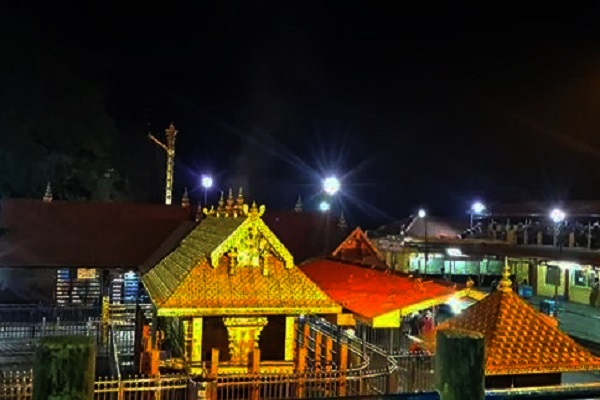
Ban on Women Entering Sabarimala Temple Has Been Lifted
- By Nathan Glover --
- 02 Oct 2018 --

A panel of five judges struck down the age-old ban on women entering Sabarimala Temple.
Women, irrespective of whether they are menstruating or not, have the right to enter Sabarimala Temple[/tweetit], located in Kerala, an Indian state, known as God's own country. The temple is over 800-years-old and is the spiritual house for the God of growth, Lord Ayyappa. The temple, located on a precipitous mountain inside a tiger reserve, attracts millions of devotees annually.
Ban on Women Entering Sabarimala Temple Has Been Lifted[/tweetthis]
The ban prevented girls and women ages 10 to 50 from entering the temple because Ayyappan, the chief deity, was an eternal celibate. A panel of five judges removed this ban, as they found it discriminatory. Also, they made a sound argument that women can pray in places of their preference.
According to Dipak Misra, the chief justice of the country, Sabarimala Temple’s restrictions cannot be considered essential for religious practices. He continued that patriarchy should not stop people who express pure devotion, nor should it hinder their freedom to profess and practice their religion.
The board in charge of managing Sabarimala Temple stated that they would follow the decision of the Supreme Court. According to the board, they are happy to bring an end to all the controversies regarding the temple.
They were able to uphold the ban against women by stating the constitution’s Article 26. According to this article, religious groups have the right to oversee internal affairs related to their religion.
However, the decision by the Supreme Court sent ripples among various religious groups. According to Rahul Easwar, a prominent activist in Kerala, they are planning on submitting a review within the next week. As a result, they will have enough time to provide meaningful arguments against the court’s ruling.
The battle in letting women enter the temple has been going on for several decades. In 1991, the high court stated only the priest has the right to decide whether women can enter the temple.
Supreme Court Continues to Make Landmark Decisions
Recently, the Supreme Court removed a law on adultery as it discriminated against women. The court also imposed limitations on how the country’s biometric identity card can use the database’s information.
In September, the Supreme Court removed Section 377, a colonial law, under which homosexuality was a criminal activity.
My Take on #Sabarimala:
I think, we shud respect rites & practices followed in places of worship.
Unlike Me talking via corporeality with a God's Soul, Deity as Idol in Temple doesn't talk. That does NOT mean a Deity has no Likes & Dislikes.
That's how Hindu Temples work.
1/3 pic.twitter.com/nqo17t5KGo
— ? ⏩ ?Jayaprakash Mohan? ? ⚡ (@jay2406) September 28, 2018


















